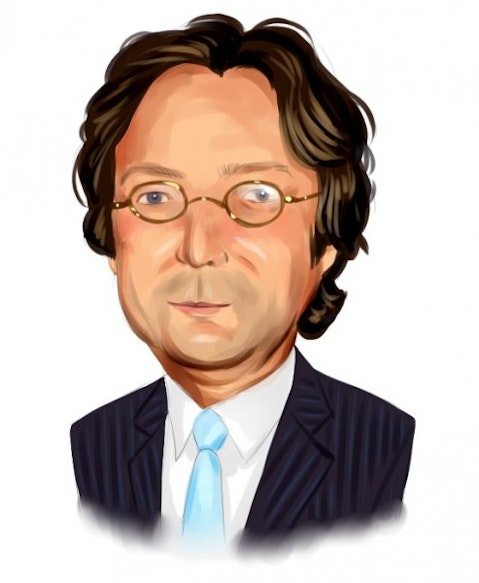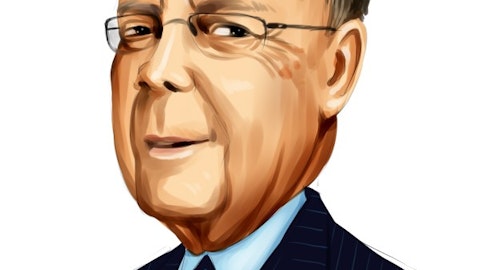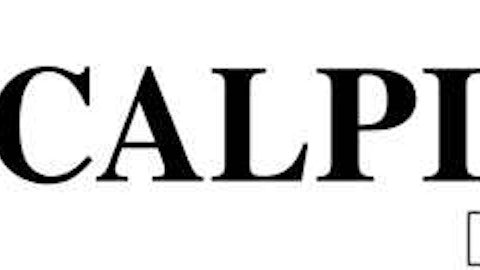LightSquared, Ergen Reach Deal on Bankruptcy Plan (Wall Street Journal)
Philip Falcone‘s LightSquared Inc. reached a deal on a restructuring plan that has the support of DISH Network Corp (NASDAQ:DISH) Chairman Charlie Ergen, its top secured lender. In a court hearing Monday, a lawyer for a special committee of LightSquared’s board said the new plan would give Mr. Ergen a $1 billion allowed claim in the bankruptcy case, and calls for him to invest $300 million in new money into the wireless venture. The deal is a “stunning reversal to us,” said David Friedman, a lawyer for Mr. Falcone and his Harbinger Capital Partners hedge-fund company. Mr. Falcone and Harbinger had been adamant that they wanted Mr. Ergen out of LightSquared’s capital structure. LightSquared, for the most part, had agreed.
HP interim Chairman Ralph Whitworth resigns to focus on health (Reuters)
Hewlett-Packard Company (NYSE:HPQ) said interim Chairman Ralph Whitworth resigned from its board of directors, effective Wednesday, to focus on his health. Whitworth, who runs activist hedge fund Relational Investors LLC, joined HP’s board in 2011. He was appointed HP’s interim chairman in April last year. It was not immediately clear what illness Whitworth, 58, was suffering from. Relational Investors said co-founder Whitworth was taking a leave of absence from the hedge fund and it wished “his family all the best at this difficult time.”
Maverick Capital’s Wyly Not Guilty Of Insider Trading (FINalternatives)
Maverick Capital and Ranger Capital founder Sam Wyly may be guilty of improperly hiding stock trades—but he’s not an insider-trader, a judge ruled Friday. U.S. District Judge Shira Scheindlin found that Wyly and his late brother, Charles, did not engage in insider-trading with a $40 million offshore swaps deal in 1999. The ruling comes two months after a jury found the Wylys liable for fraud in a case brought by the Securities and Exchange Commission.
GLG Hires Edwards From Stratton Street for Japan Equities (Bloomberg)
Man Group Plc (EMG)’s GLG Partners hired Adrian Edwards as a portfolio manager in its Japanese equities team from Stratton Street Capital LLP. Edwards will help manage GLG’s 1.29 billion-pound ($2.21 billion) Japan CoreAlpha fund, domiciled in the U.K., and its Dublin-based Japan CoreAlpha Equity (GLAAXGA) fund, with $4.35 billion in assets under management, the firm said in a statement today.
Ex-BlueCrest risk chief recruits to hedge fund (Financial News)
Markham Rae, the hedge fund manager set up in 2010 by former BlueCrest Capital Management risk chief Jonathan Martin, has recruited two former BlueCrest staff as partners. Luigi La Ferla, who spent 15 years at Morgan Grenfell and its subsequent parent Deutsche Bank during the 1980s and 1990s, joined Knightsbridge-based Markham Rae as a partner at the end of last month, according to the Financial Services Register. La Ferla was most recently a partner at World Trade Capital Partners, a venture set up in September 2012 to encourage broader investment in traditional bank businesses such as trade finance. Its regulatory authorisation with the Financial Conduct Authority ceased in February this year.
How piggybacking Peltz has paid off (CNBC.com)
Riverbed lowers guidance as sales miss target (MarketWatch)
Riverbed Technology, Inc. (NASDAQ:RVBD) said Monday it lowered its revenue guidance for the second quarter as sales fell short of company targets, especially in North America. Shares of Riverbed slipped more than 4% in early trading. The announcement comes as Riverbed continues to fight off a takeover bid from activist investor Elliott Management Corp., which has been critical of the company’s management and execution. The hedge fund–which recently owned more than 10% of Riverbed–reaffirmed Monday its all-cash buyout offer of $21 a share.
Investors exit hedge funds at fastest pace in six months (Reuters)
Investors pulled out money from hedge funds in June at the fastest pace in six months, part of their twice a year adjustments to portfolios, data showed on Friday. The SS&C GlobeOp Capital Movement Index, which calculates monthly hedge fund subscriptions minus redemptions, fell 1.77 percent in July to 148.66 points. The index is compiled by fund administrator SS&C Technologies Holdings Inc and is based on data provided by its fund clients, which represent about 10 percent of the assets invested in the hedge fund sector, or about $300 billion.
Activist Finds ChipMOS Value Is Easy to Compute (Wall Street Journal)
A Taiwanese chip company with listings in the U.S. and Taiwan has its New York shares trading cheaper than the Taipei ones. Activist investor Oasis Management is already chipping away at this gap. The company in question is ChipMOS Technologies, which assembles, packages and tests chips. It earns half its revenue from serving memory chip makers, especially Micron Technology, Inc. (NASDAQ:MU). Most of the other half comes from smartphones and high-resolution television makers who outsource work linked to displays. Samsung is a major customer, notes Credit Suisse.
Fort Worth’s Browder Capital Expands To Florida (FINalternatives)
Fort Worth, TX-based hedge fund Browder Capital is expanding its operations to Florida. The $11 million fund’s 20-something founders, Patrick Browder and Robert Sunleaf, told the Dallas Morning News they would open a second office in the Tampa/St. Petersburg, Fla., area in mid-August. Browder will move to Florida to establish the office, raise money and deal with clients.
Hedge funds bet $745 million on Kilpatrick debt in Detroit’s bankruptcy (Detroit Free Press)
Several hedge funds are betting they can profit from Detroit’s bankruptcy, snapping up more than $750 million of the city’s distressed debt. The New York-based hedge funds — whose investments in Detroit debt were first reported Friday night by the Free Press — today disclosed the size of their bets in a court filing. Viewed by critics as “vulture investors,” the hedge funds’ arrival could actually be a good sign for Detroit. Although they may drive a hard bargain in negotiations with the city, hedge funds are typically predisposed to strike settlements so that their money isn’t tied up in one single investment for too long.






